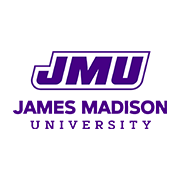Recommended Schedule for Majors
First Year
-
CSD 200. Introduction to Communication Disorders 3.00
-
PSYC 101. General Psychology [C5SD] 3.00
-
Biological sciences course 3-4 Credit Hours 1
-
General Education courses 18 Credit Hours
Total: 27-30 Credit Hours
Second Year
-
CSD 207. Phonetics 3.00
-
CSD 208. Anatomy and Physiology of the Ear and Voice Mechanism 3.00
-
CSD 209. Acoustics of Hearing and Speech 3.00
-
PSYC 160. Life Span Human Development [C5SD] 3.00
-
EXED 200. Foundations of Exceptional Education 3.00
-
MATH 220. Elementary Statistics [C3QR] 3.00
-
Physics and/or chemistry course 3-4 Credit Hours 1
-
General Education and/or elective courses 18 Credit Hours
Total: 39-40 Credit Hours
Third Year
-
CSD 300. Language Development 3.00
-
CSD 301. Audiology 3.00
-
CSD 314. Phonological and Language Disorders 3.00
-
CSD 318. Aural Rehabilitation 3.00
-
General Education and/or elective courses 15 Credit Hours
Total: 27 Credit Hours
Fourth Year
-
CSD 412. Professional Issues and Multicultural Considerations in Communication Disorders 3.00
-
CSD 415. Neuroanatomy and Neurogenic Communication Disorders 3.00
-
or
-
BIO 415. Neuroanatomy and Neurogenic Communication Disorders 3.00
-
CSD 416. Organic Disorders in Communication Sciences and Disorders 3.00
-
Electives 21 Credit Hours
Choose one of the following: 3 Credit Hours
Total: 30 Credit Hours






